Introduction
In the ever-evolving market, businesses must navigate through strategic paths to achieve success. Understanding and addressing specific business challenges is crucial in the realm of data science. Data scientists collaborate closely with stakeholders across all domains to provide actionable insights that steer a business towards its objectives.
The journey of harnessing data begins with meticulous data collection, preparation, and exploration, ensuring high-quality data and avoiding misguided decisions. Developing and deploying data models and AI solutions revolutionize how businesses approach their challenges, optimizing performance and mitigating risks. Translating raw data into meaningful insights requires effective data storytelling, combining data, visuals, and narrative elements.
Data science empowers businesses to make data-driven decisions, refine decision-making processes, and enhance operational efficiency. By harnessing AI and machine learning, e-commerce businesses are revolutionizing customer experiences, offering personalized and efficient services. Data science consultants excel in identifying new market opportunities and trends, ensuring businesses adapt and innovate.
To fully harness the potential of data science consulting, businesses should focus on a robust foundation, clear objectives, effective communication, and adherence to ethical considerations. With the right strategy and expertise, data science consulting can lead to significant improvements in decision-making and business success.
Understanding the Business Needs and Goals
To forge a successful strategy in the ever-evolving market, it's essential for businesses to not only be aware of socio-cultural, economic, and technological shifts but also to masterfully navigate through a series of strategic paths. To illustrate, a business might first optimize sales processes and then delve into penetrating its customer base more deeply. In the realm of data science, understanding and addressing specific business challenges is paramount.
For instance, when data scientists are faced with unexpected outcomes—like an algorithm predicting a decrease in customer churn with rising prices—it's a clear signal to re-evaluate the underlying assumptions and data inputs. Data scientists must collaborate closely with stakeholders across all domains—be it sales, marketing, or finance—to ensure their analysis and recommendations resonate with those who make the final decisions. It's not just about crunching numbers; it's about providing actionable insights that can steer a business towards its objectives, while enhancing the customer experience at every touchpoint.
Data Collection, Preparation, and Exploration
The journey of harnessing data to meet business objectives begins with a meticulous process of data procurement and analysis. Data science consultants are tasked with the essential first steps of collecting data from a myriad of sources, meticulously cleaning and organizing this data, and then delving into an exploratory analysis. The aim is to identify patterns, trends, and actionable insights.
This exploratory phase is critical as it not only sets the stage for the development of data models and AI solutions but also ensures that the data analysis is rooted in high-quality data—avoiding the pitfalls of inaccurate or low-quality data that can lead to misguided decisions and missed opportunities.
In light of evolving technology capabilities and widespread adoption of AI and analytics, there's a burgeoning opportunity to monetize data. Enhanced data-management tools allow for more efficient real-time processing and access across platforms, making it possible to create scalable and sustainable data-centric business models. Furthermore, advancements in Generative AI now enable companies to convert unstructured data such as text, images, and videos into a standardized form for analysis, which was once a cost-prohibitive process.
It's imperative to approach this data journey with a set of best practices in mind. These include a commitment to data integrity and the application of systematic methodologies throughout the analysis to maintain accuracy and reliability. Additionally, being cognizant of privacy, security, and accountability rules is crucial in responsibly leveraging data science, as these regulations often encapsulate codified best practices that can guide effective application.
With over 2.5 quintillion bytes of data generated daily, the pressure to keep pace with market shifts and consumer behaviors is immense. Rapid collection and analysis of data can provide a competitive edge, allowing businesses to swiftly adapt to trends and opportunities. As the data landscape continues to evolve, staying informed on the latest news, such as Alteryx's recent acquisition by Clearlake and Insight Partners for $4.4 billion, can offer insights into the industry's trajectory and the potential for future innovation in data science.
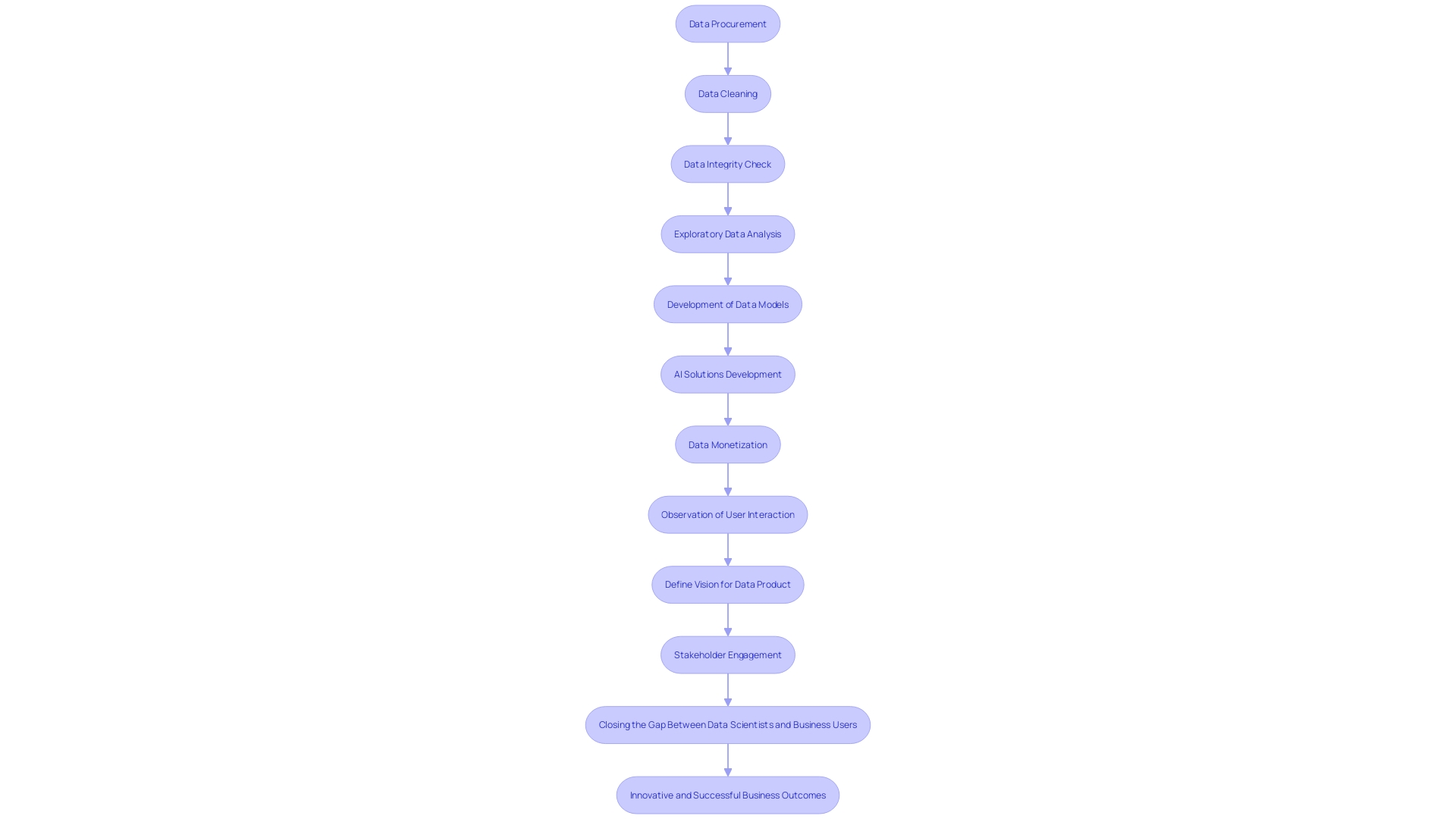
Developing and Deploying Data Models and AI Solutions
In the dynamic landscape of e-commerce, data science consultants are revolutionizing the way businesses approach their unique challenges by crafting bespoke AI-driven models. These models, powered by technologies such as machine learning, serve as the backbone for sophisticated predictive analysis, recommendation engines, and individualized customer experiences. For instance, Axfood, a leading food retailer in Sweden, harnesses Amazon SageMaker to finesse their data with machine learning, resulting in a significant increase in the sophistication and number of their production models.
Similarly, ICL, a global manufacturing and mining corporation, leverages AI to monitor industrial equipment under challenging conditions, transitioning from manual inspections to more scalable, cost-effective solutions.
As the business world rapidly evolves, organizations are recognizing the need to adapt their data repositories. Reflecting on the past when SQL databases marked a significant innovation, it's clear that today's data management must embrace new transformations, such as vector databases and large language models (LLMs). These advancements demand a reassessment of how businesses store and retrieve data, with a fresh emphasis on recontextualizing information to fit contemporary models.
With AI's potential to redefine the programming landscape, the tools to manage diverse data types have become increasingly sophisticated. Financial institutions, for example, are now combining structured transaction histories with unstructured market analysis to assess creditworthiness, necessitating advanced AI tools to tackle the complexity and mitigate error risks.
The importance of a well-prepared data estate cannot be overstated. As Wangui McKelvey emphasizes, data serves as the critical fuel for AI, and understanding the insights derived from AI is paramount for maintaining a competitive edge. Therefore, the journey from proof-of-concept to production requires meticulous planning, ensuring data is comprehensive, high-quality, and reflective of the target demographic.
The integration of AI across various industries, from customer service chatbots to predictive healthcare analytics, illustrates its versatility and transformative impact on operational efficiency. Data analysis, both descriptive and predictive, plays a pivotal role in uncovering trends and informing business forecasts. Despite the availability of data, businesses often grapple with the challenge of harnessing it effectively, necessitating the adoption of robust tools capable of consolidating and analyzing data from disparate sources.
Presenting and Automating Insights
Translating raw data into meaningful insights requires more than just analytical skills; it demands a compelling narrative. Effective data storytelling hinges on clarity and simplicity, guiding stakeholders through insights with visualizations that speak volumes at a glance. Bar charts, line graphs, and other classic visual tools remain powerful for their ability to convey complex data stories in an understandable format.
By focusing on key messages, data science consultants can extract profound insights, such as discerning seasonal trends from sales data, and use them to craft strategies. A narrative that resonates with its audience is critical. It's about choosing the right language and visuals that align with the audience's expertise and addressing their specific needs.
The practice of data storytelling transcends mere presentation, embedding data within a narrative that's not just easier to grasp, but also more engaging and actionable. It's a blend of data, visuals, and narrative elements, designed to present information in a manner that connects with the audience on a more profound level, ultimately influencing decisions and driving change.
Real-world cases illustrate the transformative power of well-structured data storytelling. For instance, a team overhauling their data architecture discovered opportunities for better data management by standardizing naming conventions and languages, thus ensuring adaptability. This approach, combined with executive buy-in, crafted a data narrative that supported long-term vision and minimized errors.
Similarly, Bosch's innovative SOFC system uses a digital twin to visualize and monitor data, optimizing performance and cost over the system's lifespan.
Implementing automated insights can further empower businesses, providing them access to real-time data for ongoing, data-driven decisions. Such systematic practices lead to cleaner, more reliable analysis—the foundation for data integrity and the avoidance of common pitfalls. By weaving data into a narrative, consultants can transform complex data into clear, compelling insights that influence decisions and drive change.
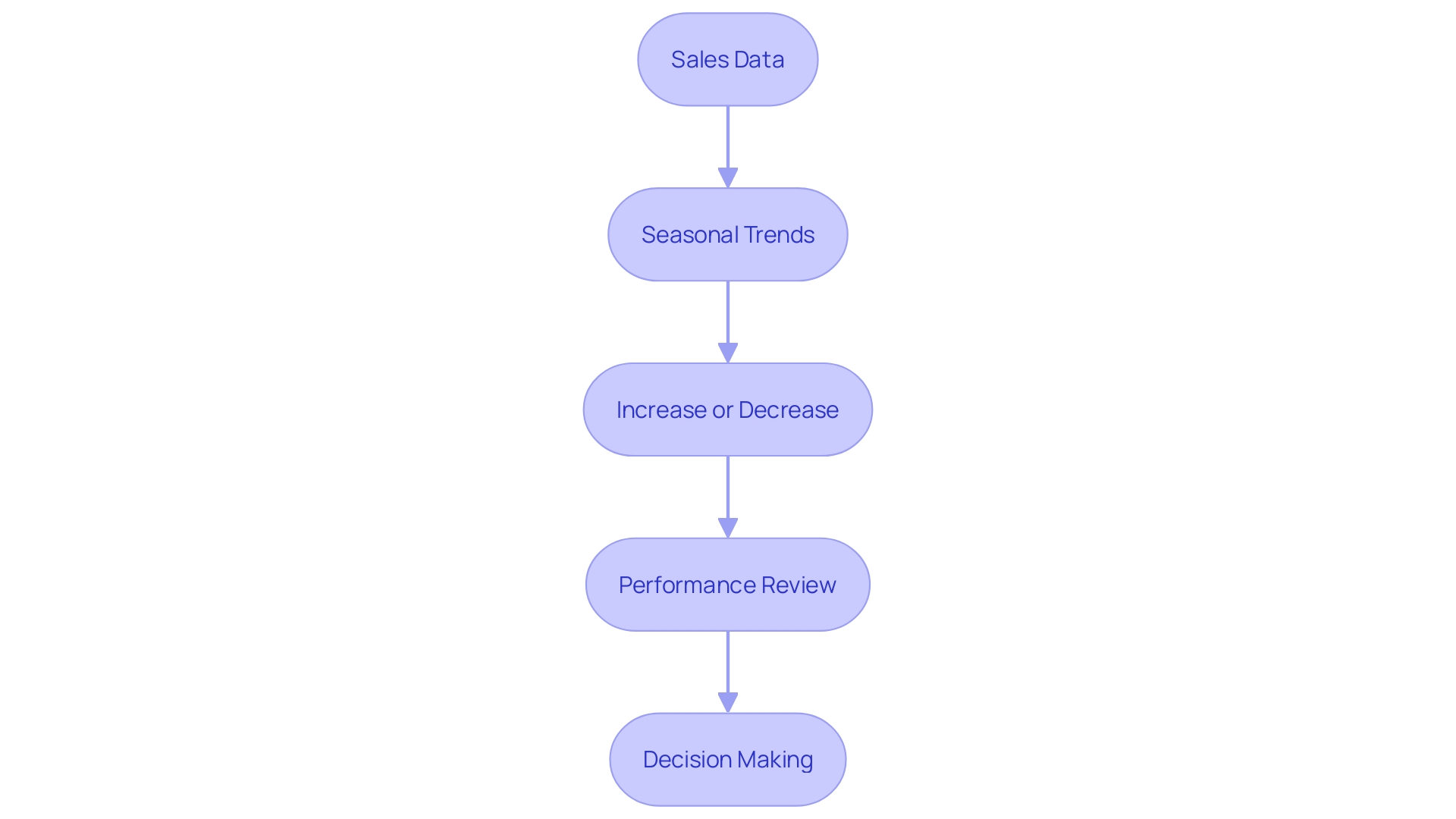
Driving Data-Driven Decision Making
Harnessing the power of data science consulting is pivotal for businesses seeking to refine their decision-making processes. The practice of data science is multifaceted, involving various techniques and algorithms to draw actionable insights from an array of data sources. It's a complex mix of statistics, computer science, and domain expertise, which allows organizations to interpret data and forecast trends, thereby fueling informed business strategies and enhancing operational efficiency.
A prime example of data science in action can be seen in Bosch's implementation of a solid oxide fuel cell system, which benefits from a 'digital twin'. This digital replication enables monitoring and optimization of performance over the product's lifecycle, illustrating how data-driven insights can significantly influence product development and sustainability efforts.
Moreover, data science's role in decision-making cannot be overstated. It starts with the collection and cleaning of raw data, which is then analyzed to reveal patterns and insights. This process can lead to a profound impact on business outcomes.
As reported by McKinsey, companies that utilize customer behavioral insights outperform their peers by 85% in sales growth and over 25% in gross margin.
The practical application of these insights is wide-ranging. They can enhance user experience, streamline business operations, and refine product development. In today's digital landscape, where markets are dynamic and customer preferences shift rapidly, the ability to pivot strategies based on robust data analysis is invaluable.
Yet, the journey from data to decision is not without its challenges. It requires a deep understanding of the business context and an ability to balance analytical rigor with practical business considerations. This is where data science consultants shine, providing the expertise needed to bridge the gap between data potential and tangible business value.
By transforming data into a strategic asset, consultants empower leaders to make choices that are not just intuitive, but also grounded in concrete data insights.
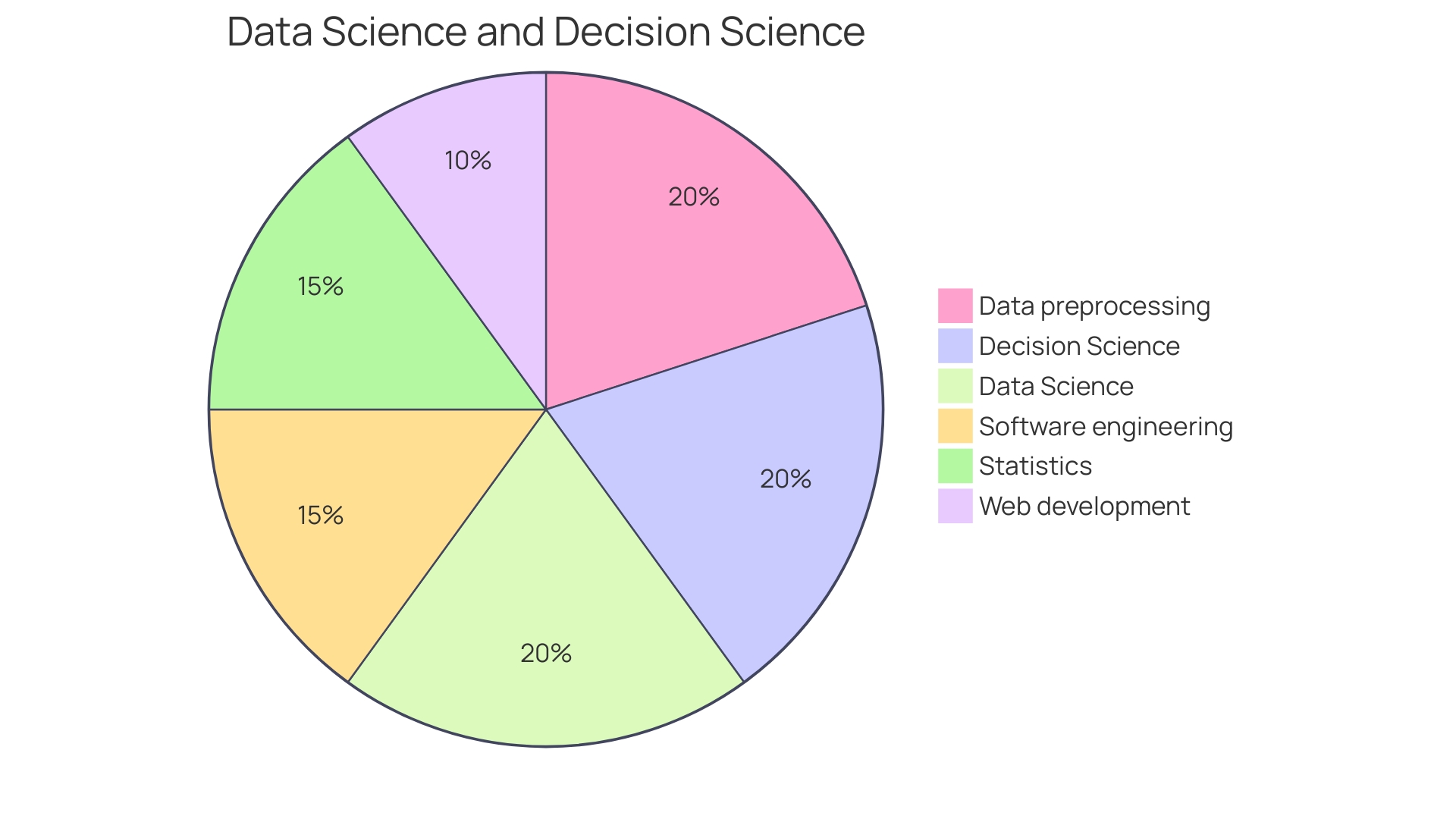
Improving Operational Efficiency and Reducing Costs
Harnessing the power of data science is essential for businesses aiming to optimize their operations and trim unnecessary expenses. With the advent of sophisticated data analytics and modeling, companies are now equipped to dissect their internal workflows meticulously. By pinpointing areas prone to inefficiency, such as bottlenecks or redundant processes, organizations can craft data-backed strategies to streamline workflows, judiciously allocate resources, and enhance overall efficiency.
For instance, Scieneers, an IT firm that specializes in data engineering and data science, leverages its expertise to distill valuable insights from data, thereby boosting the potential of data to serve business needs. Their focus on developing custom models and deploying cloud-based data pipelines exemplifies the practical application of data science in enhancing business operations.
Similarly, global technology leader Bosch has utilized its extensive engineering knowledge to develop a high-efficiency, low-emission solid oxide fuel cell system. This innovation is complemented by a digital twin that allows for comprehensive monitoring and optimization of the system throughout its lifespan, showcasing the synergy between digital engineering and sustainability.
Yet, the implementation of data science is not without its challenges. As reported by The Boston Consulting Group, a mere 44% of developed models actually reach the production stage. Additionally, data scientists often find themselves entangled in menial tasks such as IT setup, which can consume valuable time that could otherwise be dedicated to innovation.
Despite these hurdles, data science has proven to be a transformative force in business, propelling efficiency and informed decision-making. By collecting and analyzing data, companies can gain insights into customer behavior and market trends—knowledge that is crucial for tailoring strategies to meet the evolving demands of the market and preferences of customers. The result is a more streamlined operation and a solid foundation for data-driven decision-making.
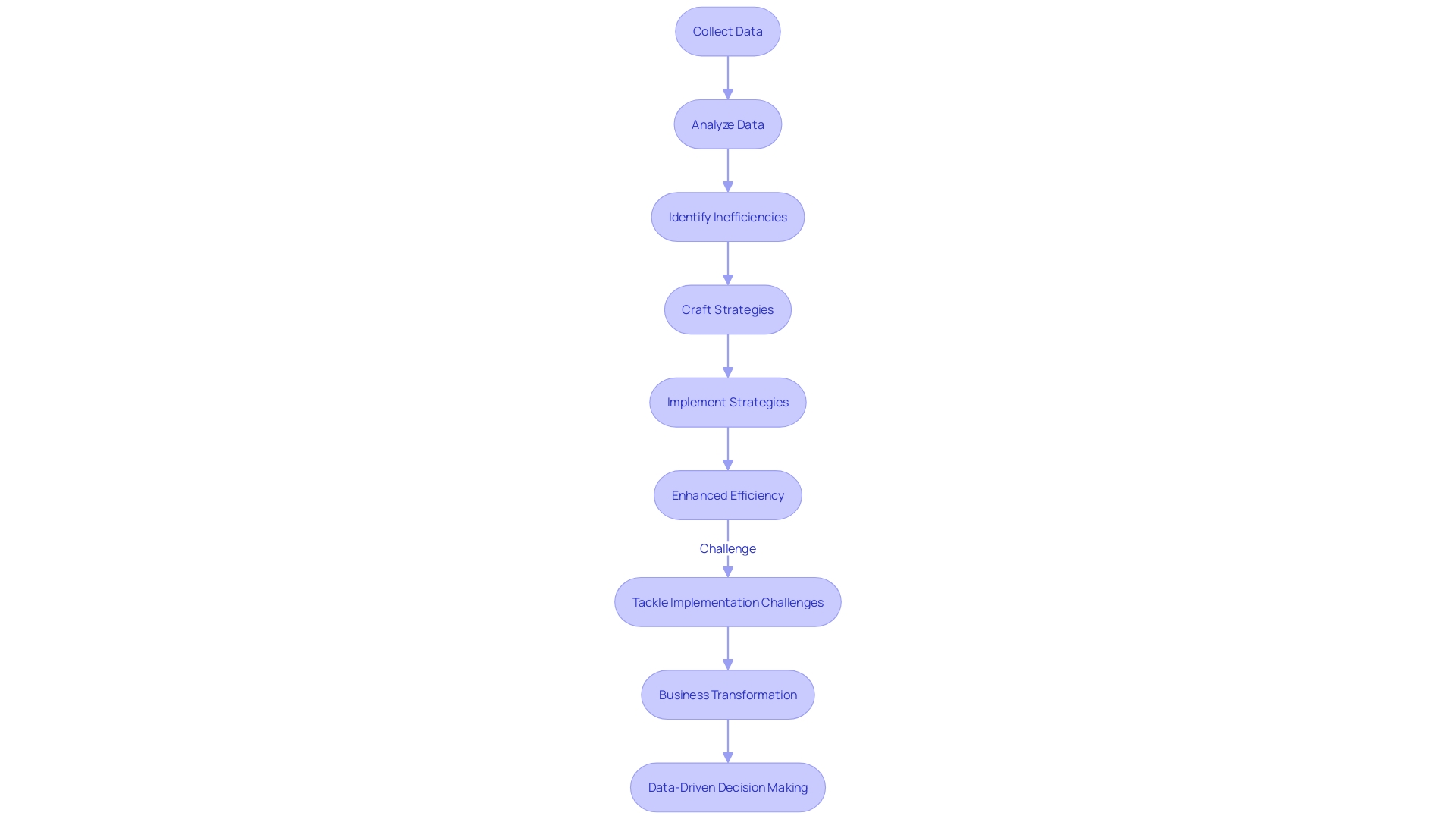
Enhancing Customer Experience and Personalization
Harnessing the power of AI and machine learning, e-commerce businesses are revolutionizing the way customers shop online. With the advent of platforms like Mood Commerce, the traditional browsing experience is being supplanted by one that is deeply personalized and efficient. Shoppers simply input their preferences, and AI algorithms curate a selection of up to three ideal outfits for any occasion, taking into account factors such as color preferences and seasonal needs.
The transformation doesn't stop at outfit selection. AI is also enhancing the review process by summarizing vast numbers of customer reviews into digestible highlights, focusing on details like size accuracy and fabric quality. This smart summarization helps customers make informed decisions without the overwhelming task of sifting through countless comments.
Moreover, the accuracy of size charts, a common frustration point in online shopping, is being improved through AI, making them more relevant and user-friendly. This meticulous attention to customer experience is rooted in a deep understanding of data science, which combines various disciplines such as statistical analysis and advanced algorithms to extract meaningful insights from complex data.
Data science's impact is evident across various sectors, but its role in e-commerce is particularly striking, offering personalized experiences that were once unimaginable. For example, by applying RFM (Recency, Frequency, Monetary) analysis and K-means clustering, retailers can dissect customer behavior and tailor their offerings accordingly, resulting in a more satisfying shopping experience.
Despite these advancements, challenges remain, particularly around data privacy and quality. Nonetheless, retail executives are committed to the expansion of in-store technology, including AI and ML, to drive sales and improve customer experiences, as highlighted in recent industry reports and surveys.
This dedication to technological advancement is exemplified by leaders like Tony Rourke, former Head of Technology at The Very Group, who spearheaded the transformation of a traditional catalogue business into a thriving £2 billion digital retailer. His work underscores the significant impact that technology, particularly AI, can have when aligned with a clear understanding of business processes and customer needs.
Identifying New Market Opportunities and Trends
Harnessing the power of data science is akin to tapping into a wellspring of market insights. Data consultants excel in dissecting the vast and complex landscape of market data, customer behaviors, and industry trends. Through meticulous analysis, they bring to light hidden market niches, nascent trends, and predictive cues for future consumer demands.
For instance, consider the strategic value of identifying socio-cultural and economic shifts in the market. A data-driven approach might reveal the optimal sequence for a business to implement growth strategies—perhaps starting with sales optimization and then penetrating deeper into existing customer bases. By following these insights, businesses not only adapt but also innovate, ensuring they're not just keeping pace but setting the pace in their industries.
Moreover, the emergence of advanced data management tools has revolutionized the efficiency with which companies handle data. The advent of generative AI marks a new frontier, making it feasible to transform unstructured data into actionable insights without prohibitive costs. These technological leaps have not only sped up the creation of new data products but have also reduced the expense associated with them.
The integration of big data analytics, which involves collecting data from diverse sources like social media and transaction records, offers a 360-degree view of the marketplace. This comprehensive approach is not just about volume but also velocity and variety, ensuring that insights are timely, wide-ranging, and accurate.
It's imperative to remember, as British mathematician Clive Humby famously noted, that data—much like crude oil—holds immense potential but requires refinement to unlock its true value. In today's data-rich environment, artificial intelligence and machine learning tools have revolutionized our ability to harness this potential, turning raw data into a strategic asset.
Ultimately, the goal is not just to collect data but to distill it into a strategic tool that can drive innovation, competitive advantage, and sustainable growth. As we navigate the data landscape, the insights gleaned from these analyses will continue to be the compass guiding businesses toward uncharted markets and opportunities.
Best Practices in Data Science Consulting
To harness the full potential of data science consulting, it is essential to start with a robust foundation in both the discipline and the specific needs of your business. Data science is not just about complex models or machine learning; it’s about leveraging data to make insightful, economically advantageous decisions. Scieneers, an IT company with a team of 35 specialists, emphasizes the importance of extracting value from data through focused engineering and science services.
By identifying the primary challenges and opportunities your business faces, you can tailor data science applications to areas such as predictive maintenance or fraud detection, thereby gaining a competitive edge and fostering innovation.
When defining your objectives, remember that clarity and precision are vital. A well-defined problem, concise and measurable within organizational constraints, is more likely to yield actionable insights than one that is vague or overcomplicated. Adopting a disciplined approach, such as the PESTEL framework adapted for data projects, ensures you consider all macro-environmental factors that could affect the outcome.
This method looks at Data Availability, Skillset, Timeframe, Organizational Readiness, and Political Environment, which are crucial elements for the success of your project.
Effective communication channels and collaboration are the hallmarks of a successful consulting engagement. As one industry expert puts it, the focus should be on getting to the root of business problems, iteratively implementing pragmatic solutions, and maintaining transparency throughout the process. Evaluating and refining solutions continuously allows for the agile adaptation to new insights and changing business landscapes.
Furthermore, in today's data-driven world, ethical considerations like privacy and security are non-negotiable. They are not only regulatory requirements but also form the cornerstone of trust between businesses and their customers. Following the rules, understanding their intent, and applying them effectively is a part of responsible data science practice.
Finally, the role of a data scientist is to translate business objectives into a coherent data strategy, turning raw data into actionable insights. This requires a solid foundation in mathematics, statistics, and computer science, as well as expertise in programming languages like Python. With the right strategy and expertise, data science consulting can lead to significant improvements in decision-making and business success.
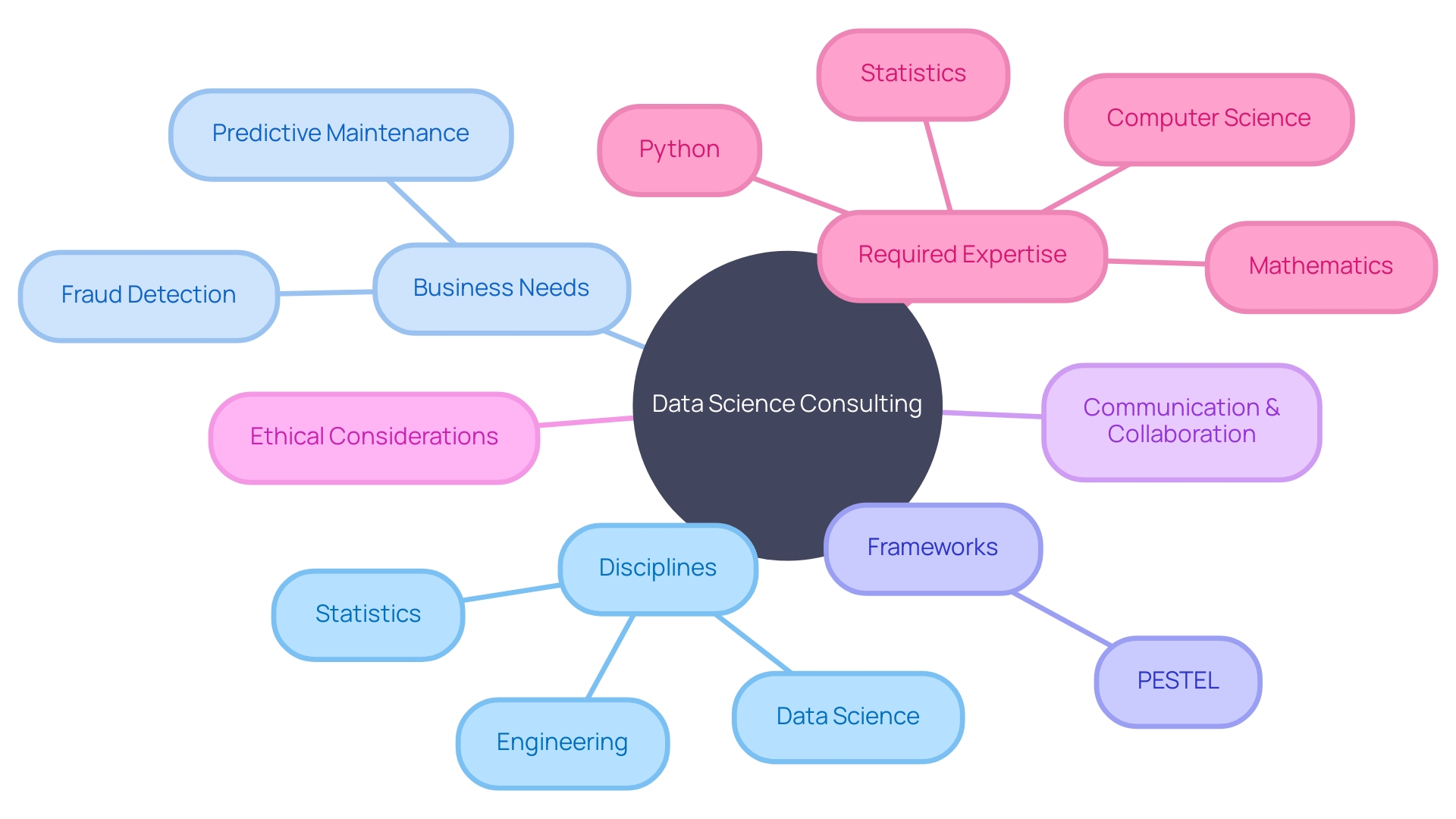
Conclusion
In conclusion, businesses must navigate through strategic paths to achieve success in the ever-evolving market. Data science plays a crucial role in understanding and addressing specific business challenges, collaborating closely with stakeholders to provide actionable insights. Meticulous data collection, preparation, and exploration are the foundation for developing and deploying data models and AI solutions that optimize performance and mitigate risks.
Effective data storytelling is essential for translating raw data into meaningful insights. By combining data, visuals, and narrative elements, data science consultants can present information in a manner that resonates with the audience and influences decisions. Automating insights and implementing real-time data-driven decisions further enhance operational efficiency and ensure data integrity.
Data science empowers businesses to refine their decision-making processes and enhance operational efficiency. By harnessing the power of data, organizations can interpret data and forecast trends, fueling informed business strategies. The integration of data science in various industries, such as e-commerce, revolutionizes customer experiences and offers personalized services.
Data science consulting identifies new market opportunities and trends by dissecting market data, customer behaviors, and industry trends. It enables businesses to adapt and innovate, ensuring they stay ahead in their industries. However, it is crucial to follow best practices, including starting with a robust foundation, defining clear objectives, effective communication, and adherence to ethical considerations.
By following these recommendations, businesses can fully harness the potential of data science consulting and make data-driven decisions that lead to significant improvements in decision-making and business success.





